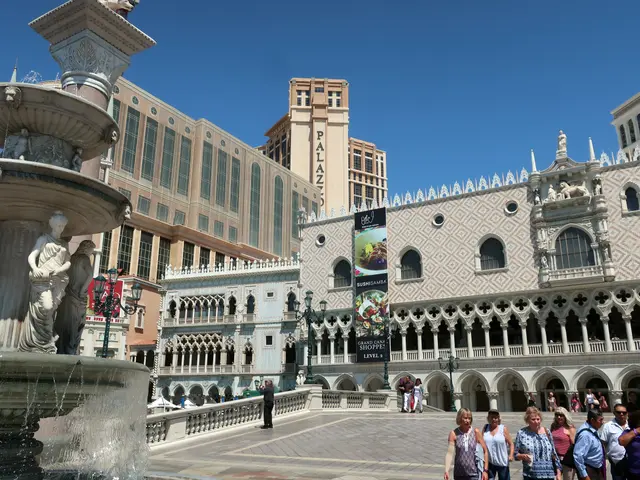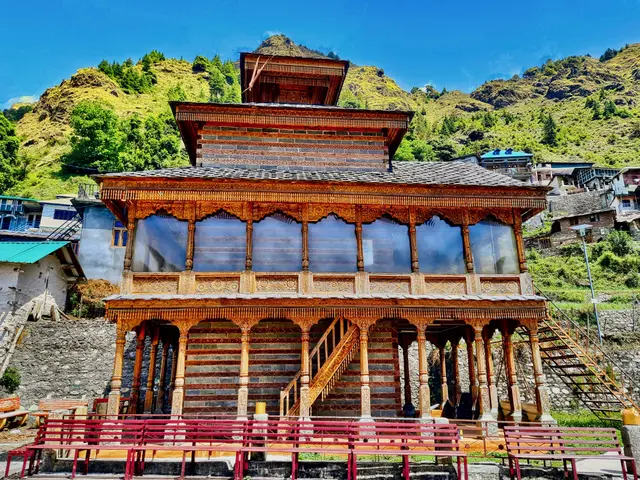Struggling Vegas: Young Population Avoids the Strip Experience
In the vibrant heart of Nevada, Las Vegas, once synonymous with slot machines, showgirls, and excessive drinking, is facing a significant challenge: attracting younger generations. According to conservative pundit Robby Starbuck, the city's traditional image no longer resonates with a generation more interested in digital activities and healthier lifestyles.
The decline in tourism numbers is evident. June 2025 saw a 11.3% decrease in tourists compared to the same month the previous year, with approximately 3.1 million people visiting the city [1]. Hotel occupancy rates dropped nearly 15%, reflecting a general reluctance to spend on travel due to economic uncertainty and weaker consumer confidence [1].
One of the key factors behind this trend is the rise in costs for resorts and entertainment, making visits increasingly expensive, particularly for younger people with less disposable income [1][2][4]. Additionally, the convenience of online gambling, especially among tech-savvy audiences, is drawing potential tourists away from physical casinos [3].
While Las Vegas has invested in flashy attractions like The Sphere and big sports events, these efforts have not been successful in attracting younger visitors to the Las Vegas Strip [5]. The city's average hotel rate of $163.64 per night, although lower by 6.6% compared to before [6], still presents a barrier for some budget-conscious travellers.
Gallup polls reveal that about 38% of adults under 35 do not consume alcohol at all, reflecting a significant increase in young adults choosing not to drink [7]. This change in habits, coupled with the rise of online gambling, is causing concern among hotels and casinos in Las Vegas [8].
Robby Starbuck emphasizes the need for Las Vegas to adapt and come up with new ideas to remain relevant and appealing to its younger visitors [9]. He suggests the city should aim to attract families and adapt to the future, potentially by changing its image to align with healthier lifestyles and digital activities [9].
The US online gambling market was worth $12.68 billion in 2024, indicating a shift in people's gambling habits [10]. If Las Vegas does not adapt, Starbuck believes it may lose appeal to younger generations, who prefer making friends online rather than seeking traditional face-to-face social experiences [11].
Amid these challenges, a new 43-story resort planned for the Las Vegas Strip has been indefinitely postponed [12]. The Las Vegas Convention and Visitors Authority (LVCVA) provided these statistics and numbers [13].
As Las Vegas navigates these changes, it faces a critical juncture in its journey to remain a vibrant and appealing destination for all generations.
References: 1. LVCVA Press Release 2. LVCVA Economic Impact Report 3. American Gaming Association Report 4. CNBC Article 5. Las Vegas Review-Journal Article 6. TripAdvisor Hotel Price Index 7. Gallup Poll 8. Las Vegas Sun Article 9. Fox News Interview with Robby Starbuck 10. Statista Online Gambling Market Size 11. CNN Interview with Robby Starbuck 12. Las Vegas Business Press Article 13. LVCVA Annual Report
- The rise in online gambling, particularly among tech-savvy audiences, is causing concern among hotels and casinos in Las Vegas, with the US online gambling market worth $12.68 billion in 2024, a shift that may pull potential tourists away from physical casinos.
- While Las Vegas continues to invest in attractions like The Sphere and sports events, these efforts have not been successful in attracting younger visitors to the Las Vegas Strip, a trend that experts attribute to the city's traditional image no longer resonating with a generation more interested in digital activities and healthier lifestyles.
- In an effort to remain relevant and appealing to its younger visitors, pundit Robby Starbuck suggests that Las Vegas should aim to attract families and adapt to the future, potentially by changing its image to align with healthier lifestyles and digital activities, as the convenience of online gambling continues to draw potential tourists away from physical casinos.






